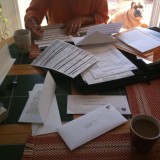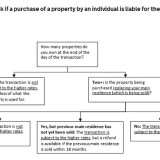Buying/Selling Property? Beware Conveyancing Cyber Crime!
In 2015, PayPal, a pioneer in secure digital payments, said that an employee was tricked into transferring $30.8m to an overseas account… Rather ironic! But still, very frightening. If it’s possible for a company like PayPal to get tricked by cyber-criminals, surely no one is safe.
Recently Property Lawyers and Conveyancing Firms have become prime targets of cyber criminals and the threat is growing. Losses by British lawyers tricked into transferring funds to cybercriminals have jumped up by 40% in the last year.
In the six months up to April 2016, £2.53 million (mostly clients money) was stolen through cyberfraud, that’s up from £1.81 million in the same period in 2015.
Why do Cybercriminals target Conveyancers and Property Lawyers?
The conveyancing process includes the transfer of large sums of money. So that’s a large sum of money going from the buyer, to the conveyancers bank account, and then on to the seller. With so much money being transferred around, it makes conveyancers and their clients prime targets for cyber-criminals.
Also, it’s not uncommon for conveyancing firms and solicitors to have poor cyber security measures in place, making them easy targets.
How do cyber-criminals steal our money?
When you hear cyber-criminals you probably think of some 1980s super hacker with a powerglove, but that’s not the case, it’s far simpler than that, it’s more like a modern form of fraud.
A common way that fraudsters steal money is through simple emails, I’d say 99% of all conveyancing fraud cases are through email.
The cyber fraudsters will usually get into the email accounts of either the client or their conveyancer. Then the fraudsters will use the information within the emails to have the money, that should be transferred to the seller, transferred to their own account instead.
There are plenty of real life examples of cyber fraud within the conveyancing industry, like this, and this one, oh don’t forget this one (click the links).
How can I protect myself from cyber fraud?
First of all, if you’re buying or selling a house, you have to realise that you are an attractive target for fraudsters and hackers. Don’t say “It’ll never happen to me.”
Be weary of every email and phone call you receive, they might not be who they say they are. If there’s something suspicious or unfamiliar going on, it could be a sign that you’re emails (or your conveyancers emails) have been compromised. Trust no one, make sure you double check every email and phone call.
Finally, it’s important that you keep yourself cyber secure in general. Here are some cyber security tips you should live by:
- Use strong passwords
- Change your passwords often
- Don’t use the same password for different accounts
- Don’t leave your devices unattended
- Don’t open unknown email attachments (they might contain viruses)
- Be careful what devices and public wifi’s you use
- Make sure you have up to date anti-virus software
- Don’t share sensitive information on social media







